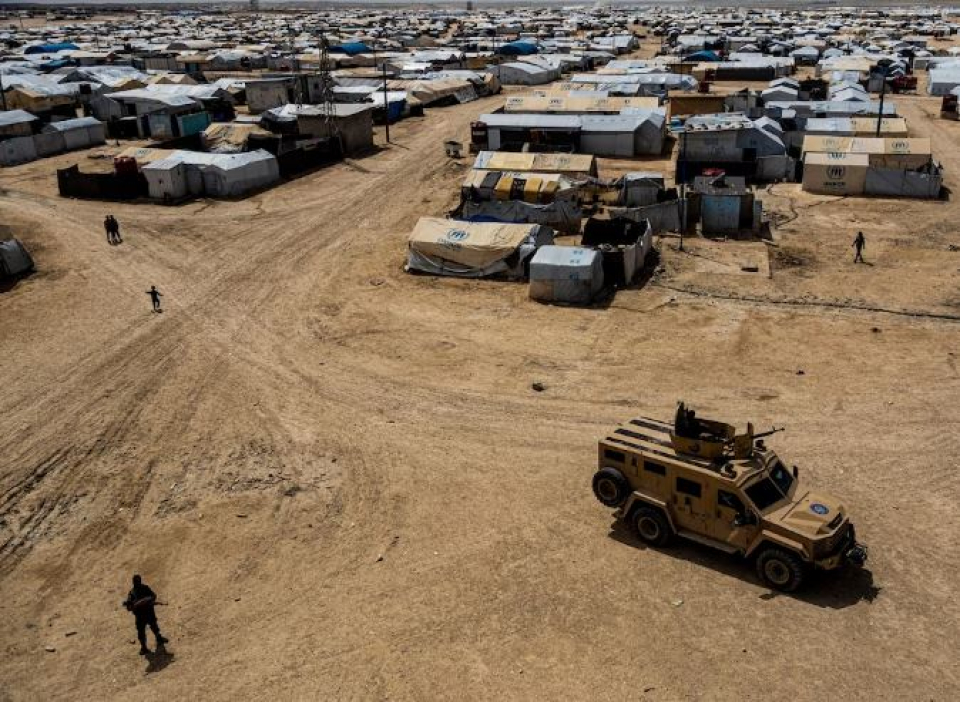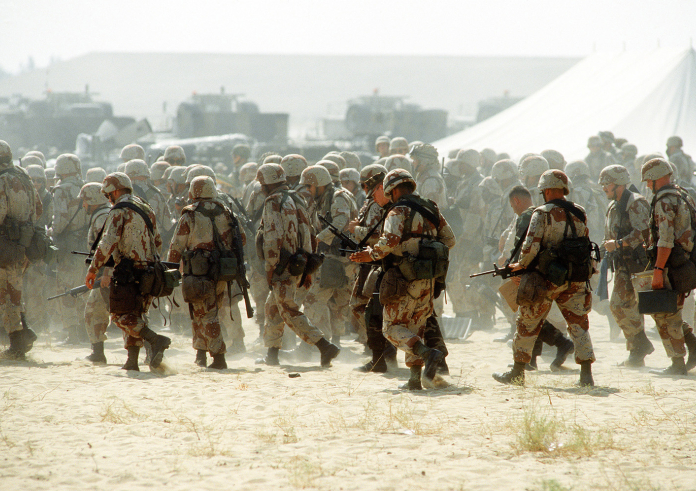Iraq is intensifying efforts to repatriate its citizens from a camp in northeastern Syria, where tens of thousands of people, mainly wives and children of Islamic State fighters and supporters of the militant group, are housed. The move aims to reduce cross-border militant threats and ultimately lead to the closure of the facility.
The al-Hol camp, located near the Iraq-Syria border, is considered a major security threat by Iraqi officials. It is seen as a breeding ground for the radical ideology of militants and a place where children are exposed to extremist views.
Since January, over 5,000 Iraqis have been repatriated from al-Hol, primarily consisting of women and children. Iraqi men who were involved in crimes as IS members are often reluctant to return, fearing prosecution. Those expressing willingness to return undergo security checks in Baghdad, after which they are sent to the Jadaa camp near Mosul for rehabilitation programs, including therapy sessions with psychologists and educational classes to help them shed extremist mindsets adopted under IS.
Iraq has been urging other countries to repatriate their citizens from al-Hol, considering it a "source for terrorism." Failure to do so could lead to a resurgence of the Islamic State group, warns Iraq's Foreign Ministry.
Al-Hol camp, which was once home to 73,000 individuals, including Syrians and Iraqis, has seen its population drop to just over 48,000. Those remaining include citizens from approximately 60 other countries who had joined IS, making the camp's closure a complex international challenge.
The camp's population includes 23,353 Iraqis, 17,456 Syrians, and 7,438 from other nationalities, with non-Syrian and non-Iraqi nationals often being the most ardent IS supporters. While some Syrians have been released when deemed non-threatening, the release of other nationalities requires their countries of origin to agree to repatriation.
Despite IS's defeat in Iraq and Syria, the group's sleeper cells continue to carry out attacks. Reports of dire conditions within al-Hol, especially for children, have raised concerns among rights groups. Inadequate access to food, water, and medical care, as well as reports of abuse within the camp, have prompted calls for humanitarian assistance to improve living conditions.
The U.S. military, which has troops stationed in eastern Syria alongside Kurdish fighters, views reducing the camp's population as a vital step in the ongoing fight against IS. U.S. Maj. Gen. Matthew McFarlane emphasized the importance of decreasing the camp's numbers to improve security and conditions.

















